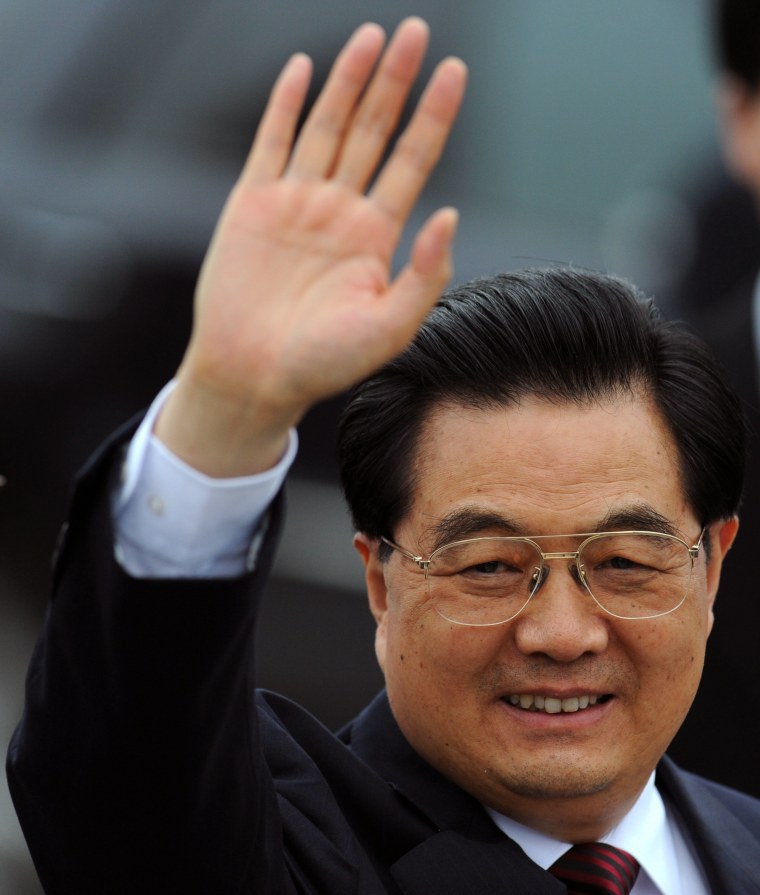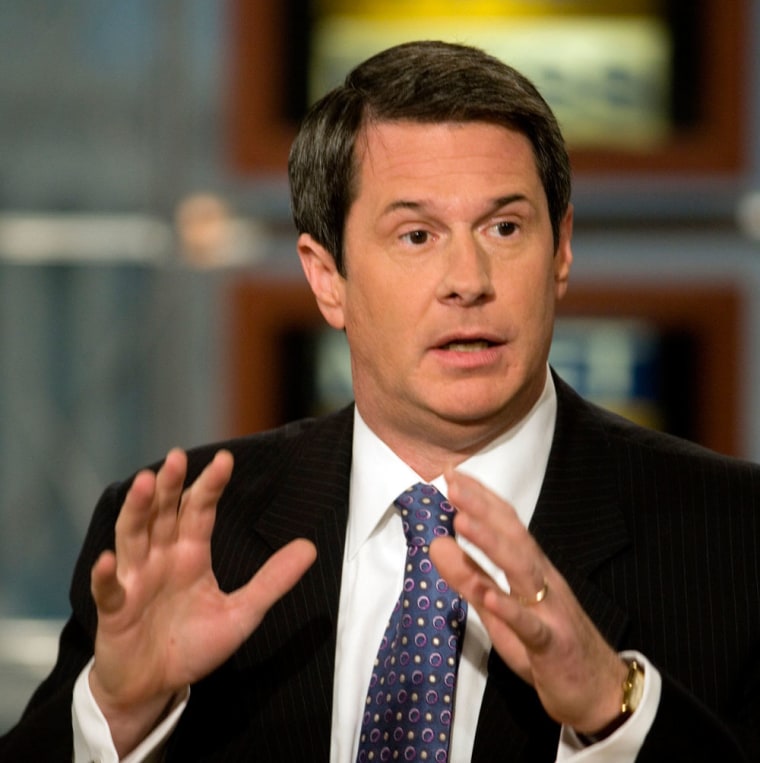President Obama sounded a bit like a weary air traffic controller on Aug. 10, when he was quizzed during a three-way summit with leaders from Mexico and Canada about a promised overhaul of U.S. immigration laws.
“I’ve got a lot on my plate, and it’s very important for us to sequence these big initiatives in a way where they don’t all just crash at the same time,” the president said in response to a reporter’s question.
While Obama said he expects Congress to send draft legislation his way later this year, the issue, at least for the moment, has been relegated to the back burner.
Triage is a necessity in an administration confronted by a deep recession, with a president who is simultaneously shepherding big initiatives addressing health care, climate change, education and financial regulation.
Obama and his aides understand there is only so much bandwidth to accommodate these efforts — and to complete work on fiscal 2010 spending bills and second-tier issues, such as a proposed rewrite of the rules for student lending.
But that means a large number of political promises Obama made during his historic campaign have been pushed to the back of the agenda. Most, in fact. The PolitiFact.com Web site, which compiled a list of 515 Obama pledges, lists 374 under the category of “no action.”
To be sure, Obama has begun to make good on some of his most prominent promises.
Just days after he was sworn in, he issued orders to shut the detention camp at Guantanamo Bay, Cuba, and limit harsh interrogation methods. Initiatives to overturn federal funding curbs on embryonic stem cell research, deliver a major address to the Islamic world and stem mortgage foreclosures, to cite just three others, followed suit.
Many other high-profile issues have been deferred, either because they involve time-consuming negotiations with Congress or because Obama simply doesn’t want to expend the political capital. Here are five that are not likely to be acted on before year’s end:
Revising ‘No Child Left Behind’
The 2002 education law (PL 107-110) was passed with bipartisan fanfare and promoted by former President George W. Bush as one of his most important domestic policy achievements. But its focus on standardized testing as the measure of achievement and the way it expanded the federal government’s role into what has been traditionally a local issue prompted heated calls for revision.
During his campaign, Obama said he would overhaul the law “so that we are supporting schools that need improvement, rather than punishing them” and pledged to find innovative ways to recruit and reward good teachers.
However, a planned reauthorization has been crowded out by other domestic priorities, particularly Obama’s push to retool the U.S. health care system, making it unlikely that a planned reauthorization will move quickly. Education Secretary Arne Duncan wants to complete a nationwide listening tour before submitting a proposal to Congress. His department is also overseeing the expenditure of about $100 billion in new funding.
Confronting China
Obama stated last year that China’s rise posed one of the most important foreign policy challenges to the United States in the coming decade. He promised to discourage China from manipulating its currency, the yuan, to keep the prices of its goods cheap and generate trade surpluses. And he pledged to discourage China’s support for genocidal and repressive regimes in Sudan, Burma, Iran and Zimbabwe.
Though Treasury Secretary Timothy F. Geithner said during his confirmation hearing that the administration would act “aggressively” using “all the diplomatic avenues” to change China’s currency practices, the White House has stopped short of making a formal declaration to Congress that China is manipulating the yuan to gain an unfair trade advantage. Such a move could spark punitive action and countermeasures from China.

Obama and Chinese President Hu Jintao instead launched a “strategic and economic dialogue” in April. Experts such as Brookings Institution visiting fellow Dennis C. Wilder sense there is more continuity than change in the administration’s approach to engaging China — characterized by non-ideological dialogue that stresses positive areas for cooperation.
One difference is the administration’s elevation of climate change to a top-tier issue. The administration understands that efforts to pass climate change legislation in Congress hinge, in part, on getting China to do its part in reducing the global carbon footprint.
Funding veterans’ programs
Obama, who as a senator served on the Veterans’ Affairs Committee, spoke during the campaign about the “sacred trust to care for our nation’s veterans” and complained about years of chronic underfunding of the Veterans Administration medical care system.
He pledged to fully fund the VA and make the VA budget must-pass legislation.
But it’s Congress that is doing most of the heavy lifting to make the promise reality. The House in June passed a measure (HR 1016) that would put veterans’ health care programs on a two-year budget cycle and make funding more predictable. The VA would receive $108.9 billion, about 15 percent more than in fiscal 2009 (PL 110-329) and equal to President Obama’s fiscal 2010 budget request.
Once money is released, the VA would detail to Congress any impediments to estimating future budgetary needs. The Office of Management and Budget would then request advance funding a year ahead of time and make the VA submit to Congress detailed explanations of those spending figures. The agency then would have to update Congress by July 31 of each year on whether the advance appropriations would be sufficient to meet the department’s needs.
This would give the VA more certainty, but not as much as Obama pledged.
Rebuilding the Gulf Coast
During the campaign, Obama said he would “keep the broken promises made by President Bush to rebuild New Orleans and the Gulf Coast” and take steps to prevent failures in emergency planning and response seen during Hurricane Katrina in 2005.
Specifically, Obama would ensure New Orleans has a levee and pumping system to protect the city against a 100-year storm by 2011, free up rebuilding funds that had been allocated but not released and to rebuild hospitals and schools.

Much of the work remains on the drawing boards. The administration got into a tussle with Sen. David Vitter, R-La., after he briefly stalled the nomination of Craig Fugate to head the Federal Emergency Management Agency because new federal flood maps included areas that were not previously designated flood zones, including much of Louisiana’s Cameron Parish, Grand Isle, and Lafourche Parish.
Federal regulations prohibit FEMA recovery funds from being used for rebuilding in areas designated as “V-Zones” because of their risk for future flooding.
An August 2009 report from the Brookings Metropolitan Policy Program concludes the region still faces major challenges due to blight, unaffordable housing and vulnerable flood protection.
Though New Orleans’ economy is weathering the recession fairly well, the report says some districts continue to have high numbers of vacant and blighted residences, and that essential service workers can’t afford fair market rents. And while 16 additional schools opened in the New Orleans area in the previous 12 months, the entire area remains vulnerable to storm-related flooding. A storm-surge protection system now being built by the Army Corps of Engineers would not adequately protect against another storm of Katrina’s magnitude, the report states.
Importing prescription drugs
In spite of its overwhelming focus on overhauling the health care system, the administration has been silent on one of Obama’s signature health care promises: allowing consumers to import drugs made in FDA-approved facilities in countries where they are often sold for less.
During the campaign, Obama charged that some drugmakers were exploiting Americans by charging premiums of as much as 67 percent higher than the prices they charge for the same medicines in Europe and Canada.
But Obama’s administration has since cut a deal with the pharmaceutical industry in which drugmakers promised to provide $80 billion in discounts to seniors and the government over 10 years to help pay the cost of a health system overhaul.
Ironically, Obama’s 2008 presidential opponent, Sen. John McCain, R-Ariz., offered an amendment during debate on a Senate Health, Education, Labor and Pensions Committee health plan that would have written such an importation provision into law. Democrats helped defeat it by a 10-12 vote, arguing that allowing access to the cheaper drugs from abroad was potentially dangerous in light of all the hazards Americans have faced in recent months from risky imported products.